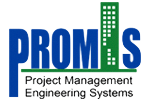| Course Information | ||
|---|---|---|
| 1 | Venue | Abu Dhabi, U.A.E. |
| 2 | Date | 27 Sep -01 Oct, 2020 |
| 3 | Download PDF | |
4 | Registration Fees | |
5 | Register | Online 800 PROMIS |
6 | Presenter |
INTRODUCTION
The effectiveness of maintenance management depends significantly on proper deployment of resources in the form of spare or parts and other maintenance materials, necessary tools and instruments and manpower, and ultimately life-cycle profit for an organisation (Sherwin, 2000). This course is designed to provide in-depth understanding of the key maintenance management strategies including object-objective Maintenance Management (OOMM), Effective-centered Maintenance (ECM) and Total Productive Maintenance (TPM). These focuses on ‘ doing the right things’ instead of ‘doing things right’. The course will present the key technology, human resource and management aspects of the subject. The emphasis will be more on the four phases from employee participation, quality improvement, maintenance development to performance measurement. ECM in particular was found to optimize departmental management decisions, the planning of operation,
overhaul and or renewal of equipment and improvement of services performance. TPM determines the life-cycle profits for effectiveness which no doubt will bring potential benefits to organizations in term of creating values to customers and improve the cost effectiveness of organization operation and backing up business operation. Several ideas and operation
strategies will be explored such as lean manufacturing, just-in-time production and six-sigma programmes. The course will be presented in an interactive environment, with the opportunity for a stimulating exchange with other maintenance engineering practitioners.
WHO SHOULD ATTEND
Aimed at all personnel responsible for the care of building and services plants for management including senior engineering personnel, engineers, facilities managers, maintenance superintendents and technician who are involved in setting up or improving maintenance management
PROGRAM
Day One
Maintenance objectives, Methods and Techniques
- Definition of Maintenance.
- Types of Maintenance.
- Best Practice Maintenance.
- Mapping the Business Challenges to Asset Management Challenges.
- Identifying Key Asset Management Challenges.
- Relationship between Business and Asset Management Challenges.
- Identification of the Asset Management Enablers.
Day 1 focuses on providing structured process for delegates to create a prioritized list of maintenance objectives, aligned with their organizations' business goals. Delegates are introduced to the Improvement process vs business challenges and objectives of their own organization.
Day Two
The Total Productive Maintenance (TPM) Strategy
- Effective-centered Maintenance (ECM).
- Object-objective Maintenance Management (OOMM).
- Reliability Centered Maintenance (RCM).
- Implementation Strategy.
- Implementation Organization.
- TPM Champion.
- TPM Steering Committee.
- Sub Committee Organisations.
- Pilot Site Selection and Rollout Planning.
Day 2 discusses the implementation of TPM and how it will be rolled-out within a business. The structure of the implementation organisation is identified and the need for a TPM is examined. The procedure for the selection of a pilot site and subsequent rollout to the remainder of the plant is discussed.
Day Three
Measuring the Success of Continuous Improvement
- The Use of Overall Equipment Effectiveness.
- Empowering the Team to Record Success Using “before” and “after” Analysis (Case Study)
- Establishing Improvement Targets and the “Best of the Best” technique.
- The “Six Big Losses”.
Day 3 focuses on the use of overall equipment effectiveness which the key performance indicator and introduces measure to record success using before and after analysis.
Day Four
Managing Continuous Improvement on a Daily Basis
- Team meetings.
- The Structure, Organisation and Output Requirements of Team.
- Practical Elements for the Manufacturing Team.
- PM Display Boards.
- Roles and Responsibilities.
Day 4 focuses on, practical tasks that a team implementing TPM must adopt to ensure the process shows results. It highlights how the dynamics of the following routine activities must be structured. The design and use of small group activity boards to communicate TPM goals, objectives and improvement activities..
Day Five
Sustaining Success in a Continuous Improvement Environment
- Continuous Improvement Process.
- The need for Innovation, Enthusiasm and Commitment.
- Clarity of Roles and Responsibilities.
- Course Overview.
Day 5 highlights how the TPM program will see personnel take on more responsibility and show skills previously hidden. It explores mechanism to enable sharing of best practice and ideas through internal networks and regular reviews with other departments..




